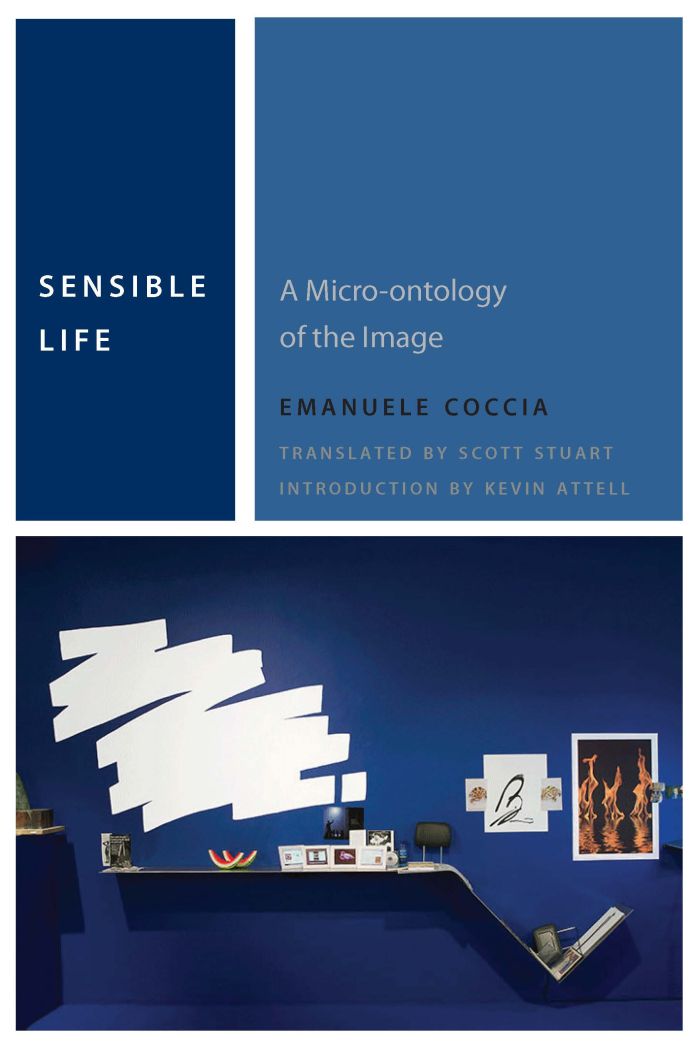Sensible Life
A Micro-ontology of the Image

This book can be opened with

We like to imagine ourselves as rational beings who think and speak, yet to live means first and foremost to look, taste, feel, or smell the world around us. But sensibility is not just a faculty: We are sensible objects both to ourselves and to others, and our life is through and through a sensible life.
This book, now translated into five languages, rehabilitates sensible existence from its marginalization at the hands of modern philosophy, theology, and politics. Coccia begins by defining the ontological status of images. Not just an internal modification of our consciousness, an image has an intermediate ontological status that differs from that of objects or subjects. The book’s second part explores our interactions with images in dream, fashion, and biological facts like growth and generation. Our life, Coccia argues, is the life of images.
La vita sensibile (2011) is Emanuele Coccia’s first book to be translated
into English. Rendered as Sensible Life: a micro-ontology of the image, it comes with an insightful prologue by Kevin
Attell, and it belongs to the excellent “Commonalities” series edited by
Timothy Campbell....Sensible Life is not a book about the ontology of the image in the pictorial or phenomenological sense, but an investigation into the metaxy of existence and being in the world.
“What Emanuele Coccia has done in Sensible Life is to create a path through which I might imagine myself—and all of us—richly obliged in the nature of the image, open to encounters that are not only of the material world, encounters that resonate as a whole that exists between the material, dematerial, psychological, and sociological spaces of things. Through Sensible Life, I partake in both the world I am in and the world I can see, whether in my mind, in my dreams, or on a glass slide. I want to do more with the layers of the world, more with the possibility of things manifested in my work.”

